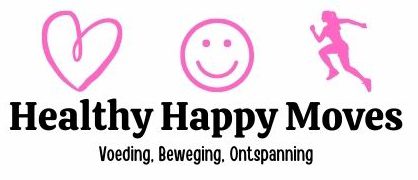Introduction
In today’s a digital age, nursing professionals along with healthcare organizations are using many online platforms to speak with patients, colleagues, and the public. Every single platform comes with its unique target audience, tone, and communication pattern. Adapting your content writing design and style guide for different platforms is critical to effectively convey your company’s message while maintaining brand persistence and professionalism. In this article, we shall explore the importance of platform-specific type guides and provide tips for setting up and implementing them.
The reason why Adapt Your Style Guide several Platforms
Audience Variation: Diverse online platforms attract diversified audiences with varying targets. What works on a professional health forum may not resonate along with patients on a social media stage. Adapting your style guide makes sure your content is tailored to just about every audience’s needs.
Tone in addition to Voice: The tone plus voice of your content will need to align with the platform’s way of life. For instance, LinkedIn content is often more professional and official, while Instagram allows for a much more casual and visual method.
Content Length: Different advertising networks have character or phrase limits. Adapting your content producing style guide helps you craft concise yet impactful sales messages, whether it’s a tweet or perhaps a blog post.
Engagement Strategies: Effective engagement techniques vary all around platforms. Adapting your style manual enables you to employ platform-specific ways to foster interaction and build romantic relationships.
Tips for Adapting Your Style Information
Platform-Specific Style Sheets: Set up separate style sheets of your style guide for each stage you use. Specify guidelines intended for language, tone, and formatting tailored to the platform’s prerequisites.
Audience Personas: Develop market personas for each platform to raised understand the demographics, interests, together with expectations of your audience. Employ these personas to inform your articles creation.
Platform-Appropriate Language: Change your language and terminology to accommodate the platform’s culture. Such as, use hashtags on Tweet and Instagram but refrain from excessive use on specialist platforms like LinkedIn.
Content material Format: Different platforms aid various content formats, just like text, images, videos, along with infographics. Specify the types of content material appropriate for each platform with your style guide.
Content Scheduling: Outline scheduling guidelines to make certain consistent posting frequency across platforms. Use content booking tools to plan and manage posts efficiently.
Involvement Strategies: Provide guidelines pertaining to engaging with your audience, as well as response times, tone of typical reactions, and handling feedback along with inquiries.
Hashtag Usage: Detail rules for hashtag implement on platforms that aid them. Ensure that hashtags will be relevant, concise, and add valuation to your content.
Visual Material Guidelines: For platforms like Instagram and Pinterest, can include guidelines for creating together with sharing visually appealing articles, ensuring alignment with your brand’s visual identity.
Review along with Approval Processes: Establish very clear review and approval processes for content on https://www.personalstatementsample.net/best-history-personal-statement-examples/ each system. Specify who is responsible for content creation, review, and publication.
Monitoring and Analytics: Incorporate suggestions for monitoring engagement along with tracking key performance metrics on each platform. Use analytics to refine your content method.
Conclusion
Adapting your content authoring style guide for different online platforms is essential to correctly connect with diverse audiences while maintaining brand consistency. In today’s online healthcare landscape, the ability to write professionally and authentically upon various platforms is a beneficial skill for nursing pros and healthcare organizations. By using these tips and creating platform-specific style guides, you can enhance your online presence and engage more efficiently with your target audience.
